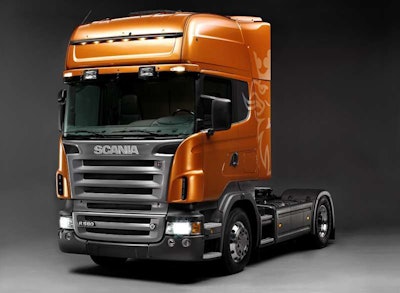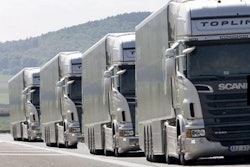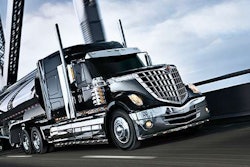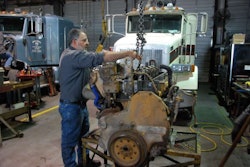Journalists, when they get together, love to compare notes about the state of the industry or topics they cover and speculate as to what – or what might not – be happening. And trucking journalists – many of whom I “compete” against but still count among my good friends – are no different in this regard.
These discussions – usually at an industry event and fueled by good wine and beer – are useful in many ways. I can tell you firsthand that you’ve got some very bright, talented people covering your industry. Talking with them is always fascinating: Someone always has a scoop, or some insight, or a little nugget of information handy. And we all usually come away from those conversations a bit better informed about what’s going on with a little better idea of what we can expect to see happen in the coming weeks and months.
Journalists, by nature, like piecing stories together and puzzling out what’s happening. As a good friend of mine likes to say, “’News’ is what somebody doesn’t want you to know. Everything else is just advertising.”
I thought of this yesterday, when my good friend Mike Pennington posted on Twitter a story about Volkswagen from Forbes called “How Volkswagen Plans to Rule the World.” It’s a fascinating read – but what does a company famous for building the best-selling compact car in history have to do with the world of trucks? Well, to me, it’s another piece of a puzzle.

Five years ago, VW announced a plan to become the leading automotive manufacturer in the world. Now the automotive industry is not my primary beat. But I do keep an eye on it because – well, because you just never know.
As older readers know, there was a time not too long ago when VW was huge. In fact, you couldn’t swing a dead cat without hitting a Volkswagen Beetle. They were everywhere. My Dad had one – a ’66 model that he bought in England and liked so much he shipped it home. In fact, the Beetle remains the top-selling car in the world to date.
But VW found it hard to follow up on the success of the Beetle in North America. They continued to sell well globally, but found themselves relegated to a bit of a “me too” brand in the States.
Five years ago, VW announced an aggressive plan to become the world’s leader auto seller. This coincided with a slew of new models, including a full-size SUV and sleek and (somewhat) affordable sports sedan, the CC.
Interesting.
A year ago, suddenly ads for $15,000 Jettas started appearing on TV. These were stripped down from previous-generation Jetta models. But the price point was very appealing – especially for younger buyers.
Another piece of the puzzle – and all in keeping with the company’s already-stated goals.
Then, back in February, I rented a car to drive to Nashville to do a story on FedEx Express Fleet Manager Marc Clark. The rental company showed up with a Jetta. Which I found interesting because I’ve been renting cars for work for almost 20 years now. And I couldn’t recall ever seeing a Volkswagen in a rental fleet at all, much less getting one.
As any car exec will tell you – rental companies are excellent ways to get potential customers to test-drive your products. And points here to VW: The Jetta was outstanding on my 8-hour round-trip drive. It handled great, was smooth and quiet and got great fuel economy. It was a much, much better car than the Altima I got stuck with driving to MATS a few weeks later. (To be fair, that Altima had a lot of miles on it. And a long-standing knock against VW has been durability issues. But, either way, I was impressed with the Jetta and wouldn’t hesitate to rent another one. And I’ll probably take a hard look at them when I get ready to buy another car – although a Maxima remains my current first-choice.)
Again, more pieces to the puzzle. But what has all this got to do with trucking?
 2004 Scania R580
2004 Scania R580Well, as the Forbes article notes, VW also owns European truck manufacturers Scania and MAN. Both companies have deep roots in European trucking. And, presumably, both companies would love to expand their customer bases outside of Europe. Could we see Scanias and MANs rolling down our Interstates one day soon?
I don’t know. Yet.
The obstacles to cracking the North American truck market are substantial to insurmountable, depending on who you ask. On the other hand, a healthy and vibrant light- and medium-duty truck/van business is a vital component to any automotive manufacturer seriously pursuing world domination. I can think of several manufacturers who clearly believe a heavy-duty truck division is an important part of that equation. IF VW is serious about world domination, at some point trucks – even if we’re just talking medium-duty delivery vans – will have to enter into its North American calculations.
And that’s why I’m keeping an eye on Volkswagen these days.









